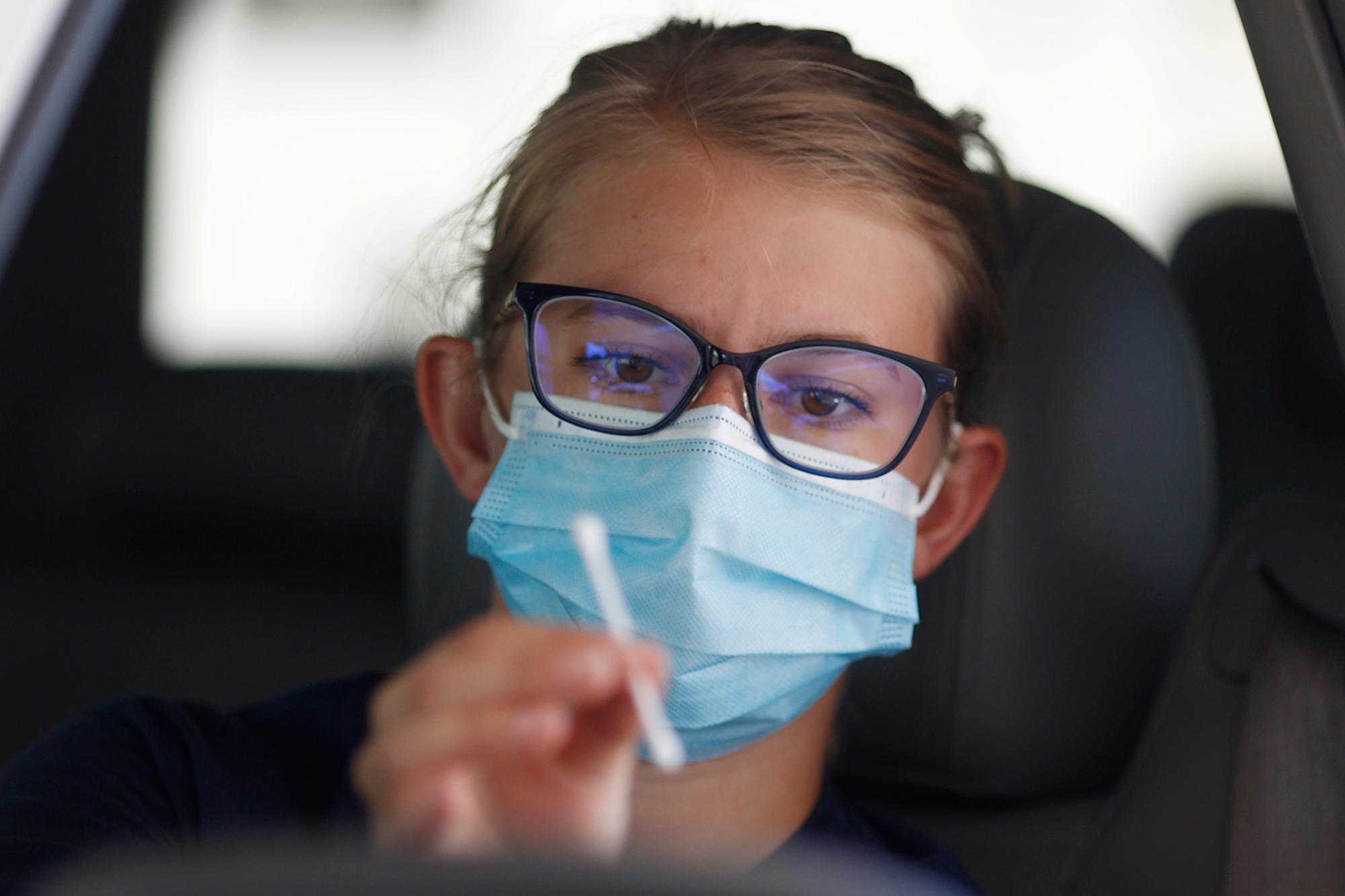
The 2020 presidential election is less than a week away, and the coronavirus pandemic is ramping up again in Colorado. How to handle stay-at-home and mask orders, the economy, and testing and hospital supplies are just a few of the questions voters have for the presidential and Senate candidates before Election Day.
Hundreds of voters filled out Colorado Public Radio’s voter survey this year, and a number of those who responded said the pandemic is one of their top issues this election. CPR News interviewed a handful of them. CPR found that the pandemic may have shed light on issues they care about, but overall it didn’t change their minds about who or what party they planned to vote for.
“Even though I felt fairly decided on who I would vote for president, I think this pandemic has exposed other inequities in our society, and so it's made me feel even more strongly about certain issues,” said Katie Nittmann, an academic adviser at Metropolitan State University of Denver who lives in Lakewood.
She’s been thinking about those who became homeless after losing their jobs or who are living in crowded jails and prisons during the pandemic. She’s been pleased with Gov. Jared Polis’ response and the local response in Jefferson County, but she can’t say the same about the national response.
“It made me feel very lucky to live in Colorado,” she said. “The national response I think felt extremely confusing. It felt delayed. And then I think it felt like it just got worse. Kind of the lack of planning and disorganization sort of devolved into actual misinformation.”
Bradford Pierce, who also lives in Lakewood, works as a mechanic. Unlike Nittmann, he’s been skeptical of the local response.
“I’ve always felt this was a little blown out of proportion, and it's not that, you know, 200,000 people haven't died and more than a million have gotten this — but it's just seemed a little too much,” he said. “I would have liked to have seen more in the area of trying to reassure people, because most of what I've seen is just, in my mind, caused panic with people.”
He thinks that mask usage should be left up to the individual — he wears his mask anytime he goes out since he has a pre-existing condition that could make a COVID-19 infection severe. Regardless, the pandemic hasn’t swayed his vote, either.
“Honestly, with regard to the pandemic, it really wouldn't have changed the way I was going to vote, because whether or not we had a Democrat or Republican in charge for the pandemic this happened. And we probably would've closed down regardless,” he said. “If the Democrats were in charge, we might still be closed down for all I know, but that's not what happened.”
Pierce felt more motivated to vote based on the economy and the national debt. He said he’s not thrilled to be voting for either party, and that he wishes there was another choice.
For another Colorado voter, feeling represented and respected by politicians dealing with the pandemic is important. Juan Sanchez, a 47-year-old who is a master’s student at the University of Denver and works in the financial aid office, quoted the president attacking immigrants from Mexico in his survey.
“I am Hispanic of Mexican descent, of course very proudly, but that doesn't minimize my pride of being an American,” he said.
Sanchez said he evaluated each candidate on his ballot and notes when candidates make sure to pay attention to people like him, like when Gov. Jared Polis speaks in Spanish to Colorado residents during his briefings about the state’s COVID-19 response.
Voters had varying opinions on how the pandemic has been handled locally and nationally since its inception in the spring, but most of the voters for this story agreed that something needs to change heading into the fall.
Marian Howard, an 83-year-old retired teacher in Cortez, has been watching coronavirus cases increase.
“Well of course, the president's comments about it just being like the flu, and I heard my grandson saying to me, ‘Oh, you don't have to worry about this. It's going to be just like the flu, it's nothing.’ And I think those comments had a big impact on people,” Howard said. “The numbers here in Montezuma County has gone up dramatically in the last two weeks. And I really wish somebody would address it.”
Cases have been increasing across the state and country. The trends are worrying, especially as pandemic fatigue sets in.
“I'm worried that after so many months of wear and tear on America and on Americans, that we're going into the winter months and I just fear that it's going to get a lot worse,” said Kyle Meyers, a 36-year-old project manager at a tech company. “And we're at a point where people are starting to disregard the things that are put in place to help protect us.”
Meyers, who’s gay, is also worried about the appointment of Supreme Court Justice Amy Coney Barrett and what may happen to LGBTQ rights. He stressed the importance of voting through the entire ballot and paying attention to what issues are happening locally, not just the presidential or Senate campaigns.
Everyone CPR talked to see the current state of politics as being somewhat messy and problematic.
“I’m saddened by all of this really. Our lives really aren’t served by what is going on with our government right now,” Pierce said in an email.
By and large, the voters see the upcoming election as an opportunity.
“I'm hopeful that the 2020 election will shed some light on how we're currently voting and maybe move us forward into having states better behind the curve on mail-in voting and things like that,” Meyers said. “I think it’ll inspire some change.”








